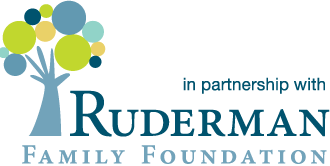Inclusion is a State of Mind: Insight from a URJ Exemplar Congregation
11/18/2015
There’s a significant uptick of energy in the Jewish disability world right now. Following recent events like the Ruderman Inclusion Summit and the URJ Biennial, people are talking about this issue in ways they never have before – and organizations are (finally!) making commitments to change.
At my congregation, Temple Beth-El in Hillsborough, N.J., we are not perfect, but I am so proud to be an integral part of a community that is committed to this ideal and is continually striving to improve. At the Biennial, we were one of 27 congregations recognized by the Reform Movement as an Exemplar Congregation, one that has excelled in one or more areas of inclusion and has agreed to serve as a mentor to other congregational professionals in specific areas of inclusion.
We have always done this work because it is the right thing to do. We have made commitments of both time and money because no one should be left on the outside of congregational life. Ever. We do not do this work for the fanfare and certainly not because we owe it to someone. We do it because we owe it to everyone. We all benefit when our communities are truly inclusive. It really is exciting to go to work every day and think about what we do well, while helping to discover ways that we can do it even better.
But even though we don’t do this work for the praise or recognition, there is no question that kavod (respect) for hard work and commitment is significant. I genuinely appreciate that our congregation had the opportunity to be honored at the recent URJ Biennial as an Exemplar Congregation is Disability Inclusion. It was a joy to celebrate our accomplishments and it was special to be surrounded by others committed to this holy work. At TBE we will use this honor as a springboard to continue to move forward, finding ever more ways to widen our reach and welcome everyone.
Inclusion matters. It’s not a favor we do. It’s not a program or a classroom or a social action project.
Inclusion is a state of mind.
Because, quite frankly, what still stands in the way of inclusion in most communities is attitude. From the American Camping Association:
The biggest barrier to creating an inclusive program is not the lack of resources, knowledge, or accessible facilities. The biggest barrier is actually one of attitude…we must understand that inclusion is first and foremost a philosophy. It is a mindset and a belief that everyone has value and something to contribute.It is a willingness to see the ability in everyone and match skill with challenge. It is an understanding that what our programs really provide at their heart is the opportunity to build relationships, learn who we are, and develop skills.It is being committed to the process of making our programs accessible — not only in the physical sense, but also by ensuring that each person’s participation is meaningful….Once we understand that inclusion is not a place, a program, or a time-limited opportunity, and that it is a state of being and a way of operating that says “all are welcome,” we can overcome the practical barriers of resources, knowledge, and accessible facilities.

